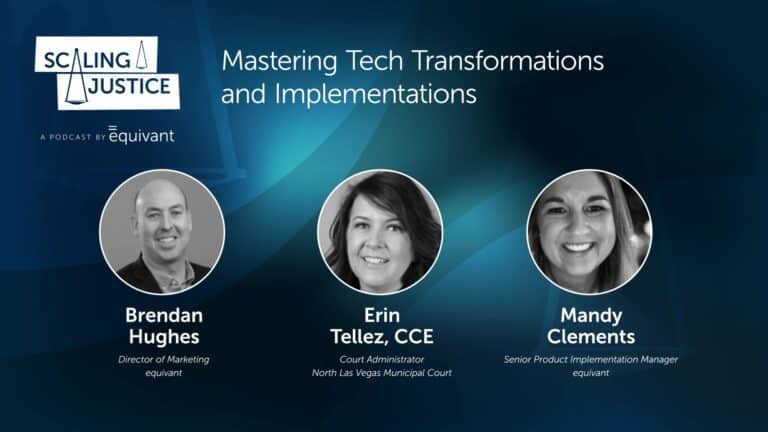Mental illness among justice-involved individuals continues to be top-of-mind for justice professionals across the country.
According to an article from the National Conference of State Legislatures (2015) a report from the Bureau of Justice Statistics (BJS), states that more than half of those incarcerated in the United States have mental health issues.
In order to create effective change, courts need to build support services for individuals in need and promote equity throughout the criminal justice system. Judicial leaders need to come together to create a system that will improve judicial services for all. This includes pre-trial assessment services to evaluate individuals prior to incarceration, offering support counseling and services for people with emotional and substance issues, and providing education and training for judges, officers, legal counsel, and court personnel on practices related to interacting with individuals with behavioral health needs.
Many of these conversations are happening at correctional facilities, but by the time individuals make it to their local jail, several opportunities for intervention have already passed.
Maybe your jurisdiction is already working toward a solution. Maybe you don’t know where to start. Maybe you’re somewhere in between.
Regardless of where you are in your journey toward prioritizing mental health care, here are some considerations to get you moving in the right direction or give your efforts a refresh:
- Consider your stakeholders. Who is involved in conversations around mental illness in the justice system? Have you reached beyond court members? What other agencies have you engaged?
- Review the literature. While new ideas and approaches are needed in this space, it’s helpful to start by understanding what’s out there. Here are a few resources from the National Center for State Courts. We recommend NCSC’s National Judicial Task Force page, their Comprehensive Task Force Report, and one of their publications, What We Have Learned and What We Must Do! We also suggest listening to the story of Lewis County’s success with inter-agency collaboration.
- Understand your local situation. What are your jurisdiction’s challenges? What has been tried in the past? What data do you have on what worked, what didn’t work, and why? What are your judges saying about their needs and challenges? What data are you currently collecting, what are you assessing, and where are your gaps?
- Map out the systems. Map the intersections among the justice system, involved agencies, and mental health systems in your community. Use The Sequential Intercept Model, adopted by the NCSC, to structure your thought process and start to identify gaps and overlaps.
- Begin the work of change. This will look different depending on your situation, and it typically starts with an idea and ends with data. Start considering how you can affect early intervention of individuals with behavioral health needs, what screening and assessment can be done early in the process, and what best practices can be initiated in pretrial, prosecution, defense, and jail practices. The NCSC article National Judicial Task Force to Examine State Courts’ Response to Mental Illness offers a number of viable solutions to help you get started.
Too many courts start with Step #5 and jump right into brainstorming and problem-solving. The problem-solving needs to happen, no doubt, but it’s important to lay a proper foundation for your plan and ensure the right voices and resources are being considered.
What’s our role in all this? We’re committed to bringing equity to the justice system through technology. Our solutions can seamlessly integrate with your preferred assessment services to provide staff with details on an individual’s history for effective management of that individual to ensure they receive an equitable judgment based on a more complete history to ensure they get the help they require.
We’re experts in assessment and data, and no matter what path your community chooses, we’re here to support you. Get in touch today. We’re here, and we’re ready for you.





